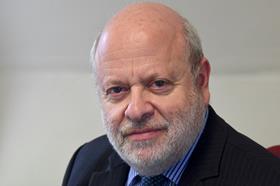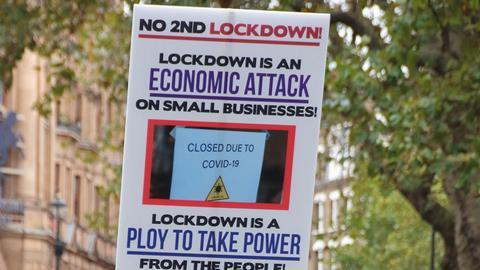This is not a good time to be a citizen in some western democracies, never mind a lawyer. The temperature rises daily. I refer not just to climate change but to the political weather; the pressure to support a political line; the blurring between truth and fiction.

We have (at the time of writing) the slow-motion attempt by a US president to overturn an election result that his own top officials announced to be the most secure in American history, together with the behaviour of his lawyers bringing lawsuits that are, so far, effectively laughed out of court.
In this country, developments are taking place at a much less intense pitch. Yet we are in danger of breaking into groups of hyper-partisanship, with support for a politician or policy being seen as more important than recognising an inconvenient truth. We see that particularly in the battles between pro- and anti-lockdown activists, hurling statistics back and forth as to who exactly is right about the health and economic consequences of the coronavirus pandemic. But there are legal examples, too. I will give three.
The head of the government’s legal department quit over provisions in the Internal Market Bill which break international law in a very ‘specific and limited way’. And the prime minister’s independent adviser on ministerial standards resigned because the prime minister disagreed with his conclusion that the home secretary had broken the ministerial code over bullying allegations.
In the run-up to this, although presumably unconnected to it, the home secretary and prime minister have both been lobbing accusations of activism and leftism at certain groups of lawyers – as if lawyers’ politics govern their legal activities rather than the law itself.
Part of a reader’s response to the list of developments in the three paragraphs above will depend on political affiliation. Just as the difference in approach to allegations of voter fraud in the US seems to depend on whether the person giving the opinion is a Democrat or Republican, despite it being a factual matter (it either took place or it didn’t). So a reader who is a Leaver or a Conservative may have a different approach to UK developments than a Remainer or a Labour supporter.
I would be interested to know, though, both in the case of the US and the UK, whether there are such sharp differences in lawyers’ responses to the relevant developments.
That is because, like being a scientist, being a lawyer is defined by an approach to the truth that we are taught in our law studies and which we follow throughout our working lives. Yes, we can have an endless philosophical dispute in our student dorms about whether there is such a thing as truth. But our working lives take place within a framework in which we accept that judges, sometimes with the assistance of a jury, will make a determination of the truth, which is then accepted by all in society. (Of course, there are miscarriages of justice, but we also have a mechanism for dealing with that.)
In the common law, lawyers’ approach to the truth includes being an officer of the court with its concomitant duties of not knowingly making a false statement to the court or similar tribunal, of disclosing material facts to the court, and of bringing to the attention of the court any relevant legal authority, even if it is unhelpful to our client’s case.
These are powerful principles, particularly the last of bringing to the court’s attention legal authorities which are unhelpful to our own argument. It demands a loyalty to a higher value than whether the point we are making at a particular time is correct or not. It demands a loyalty to accepting that there are other truths and other views, and that all of them need to be brought to light and then evaluated against each other. It also demands acceptance of the decision of an independent arbitrator, even if that arbitrator inevitably also suffers from human frailties.
There are additional important lawyers’ principles, too: that everyone has a right to put their argument, albeit subject to rules such as there being a basis in law and fact for their case, and that they have, or are reasonably likely to have, evidence in support of it. Or that evidence needs to be brought into the open, not just asserted, and should be tested through probing questions.
I hope that, amid all the communal shrieking, we lawyers, who will of course have our own political views, are bringing these values to the forefront of our arguments. Our democratic societies need them. Our framework for resolving disputes contains useful and safe principles. Belief in a politician or policy is not enough on its own.
Jonathan Goldsmith is Law Society Council member for EU matters and a former secretary general of the Council of Bars and Law Societies of Europe. All views expressed are personal and are not made in his capacity as a Law Society Council member, nor on behalf of the Law Society
































2 Readers' comments